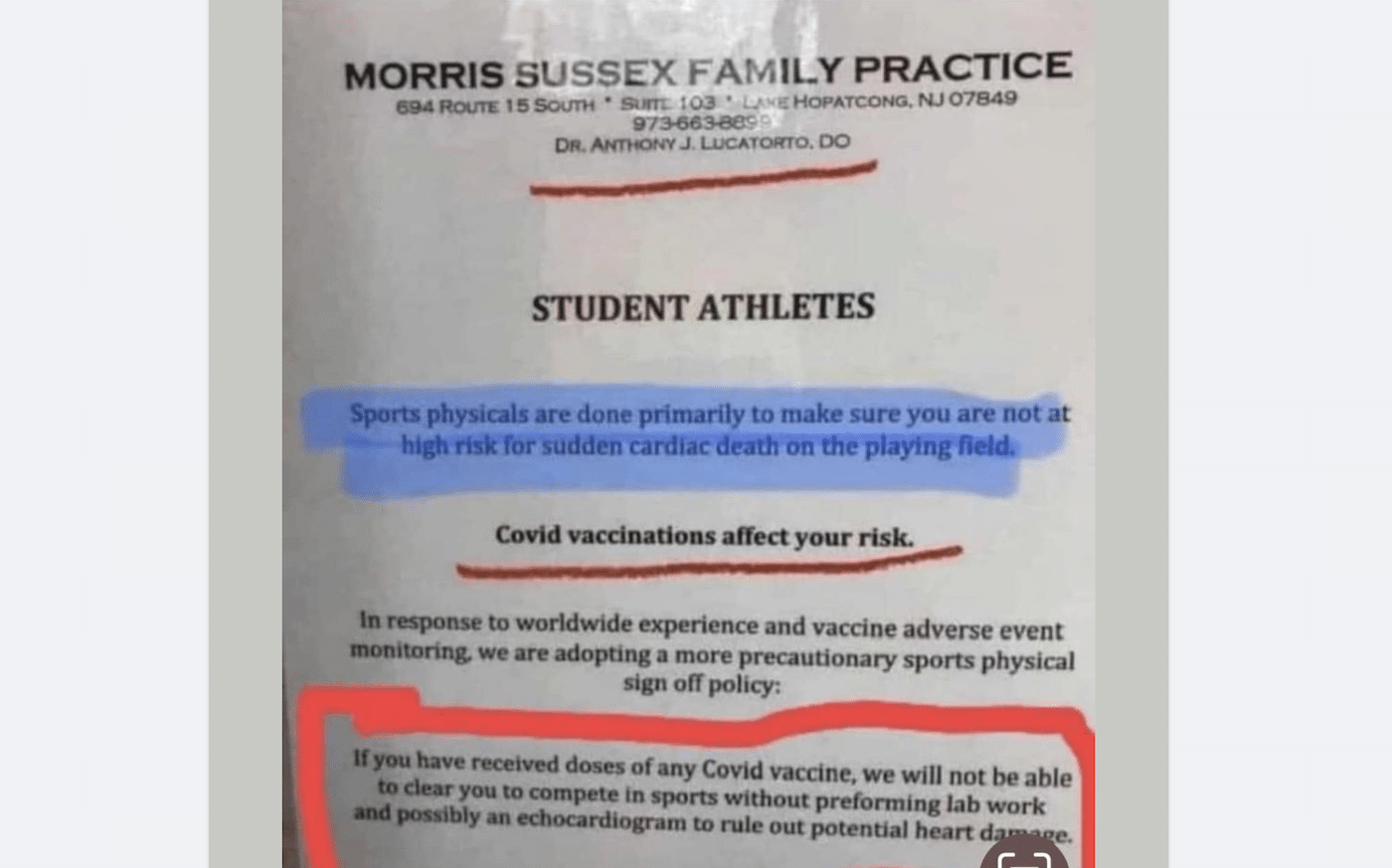- Health
Article misrepresents WHO guidance regarding vaccination at schools; the WHO recommends that parents must be informed about the vaccination
Key takeaway
According to the World Health Organization, consent to medical procedures is valid only if the person is informed and has the capacity to give consent. In the case of young children, their parents must give consent for them to be vaccinated. In certain countries, parents can give consent in an implicit manner (implied consent) by allowing their children to go to school. However, even in such cases, parents would ideally be previously informed about the vaccination occurring at school, and actively take steps to opt-out of vaccination if they don't consent.
Reviewed content

Verdict:
Claim:
The WHO considers a child's presence at school alone to be sufficient as informed consent for vaccination
Verdict detail
Inaccurate: The manner in which parents can consent to vaccination depends on a country’s laws and varies from country to country; this isn’t determined by the WHO.
Misleading: Even in countries where implied consent is allowed, a child’s presence in school alone doesn’t necessarily constitute consent. The WHO guidance recommended that parents be informed about the vaccination and give consent beforehand.
Full Claim
“The World Health Organization, which is the medical epicenter of the depopulation lobby, now considers your child's presence in school informed consent to vaccinate that child.”; “Depopulation by vaccination [is] now fully outside the law and will sterilize, sicken and dumb down every child on earth but the children of the depop lobby members who don't vaccinate their children.”
Review
In November 2019, an article published on the website Signs of the Times (SOTT), rated as a Conspiracy-Pseudoscience source by Media Bias/Fact Check, claimed that the World Health Organization (WHO) considers the presence of a child in school alone to be sufficient for informed consent for vaccination. Despite being published more than a year ago, the article went viral on social media in November 2021. In total, it received over 42,000 interactions on Facebook and over 13,000 shares at the time of this review’s writing, according to the social media analytics tool CrowdTangle.
The article referred to a WHO guidance published in 2014, titled “Considerations regarding consent in vaccinating children and adolescents between 6 and 17 years old”. The document explained what consent is, and described consent as “the principle wherein individuals must give their permission before receiving a medical intervention or procedure.” It also detailed aspects that must be taken into account to ensure that consent is given in an appropriate way
Part of the document discussed common approaches for obtaining consent for vaccination (page 3 of the document) and it is this section that the SOTT article cited to support its claim that the WHO “now considers your child’s presence in school informed consent to vaccinate that child”. This is an inaccurate manner of framing the information presented. As is made clear in the title of this section, the document simply described “current practices of obtaining informed consent for vaccination” among countries, which the document classified into three types. The first one is the use of written authorizations for parents to give consent. The second one is that parents give consent verbally if they accompany their children to the vaccination.
The third mechanism, called implied consent, was the focus of the SOTT article. Implied consent is given when parents, who have been previously informed about the ongoing vaccination, let their children go to school on a vaccination day. The document explains:
“[implied consent] is based on the opt-out principle and parents who do not consent to vaccination are expected implicitly to take steps to ensure that their child or adolescent does not participate in the vaccination session. This may include not letting the child or adolescent attend school on a vaccination day, if vaccine delivery occurs through schools.”
The document also detailed the practical challenges that exist for school vaccination to be carried out while ensuring that consent to vaccination is properly given. It stated that “countries are encouraged to adopt procedures that ensure that parents have been informed and agreed to the vaccination”. The document also added that:
“For consent to be valid, it must be informed, understood and voluntary, and the person consenting must have the capacity to make the decision.”
The article’s claim that vaccines are intended to depopulate the Earth by sterilizing children is a baseless conspiracy theory and was debunked on several occasions, such as in this fact-check by Reuters and this one by Snopes.
Overall, the WHO guidance doesn’t support the article’s claim that “the WHO now considers your child’s presence in school informed consent to vaccinate that child”. The document simply reported the practices of obtaining consent for vaccination in different countries. Indeed, how consent for vaccination can be given is governed by the laws of a country, as the document made clear, and isn’t determined by the WHO. Furthermore, even in cases of implied consent, a child’s presence at school alone doesn’t necessarily constitute consent. To ensure that informed consent is given, the WHO guidance recommended that “countries […] adopt procedures that ensure that parents have been informed and agreed to the vaccination”. Therefore, parents would ideally need to be informed about the vaccination and give their consent beforehand.



